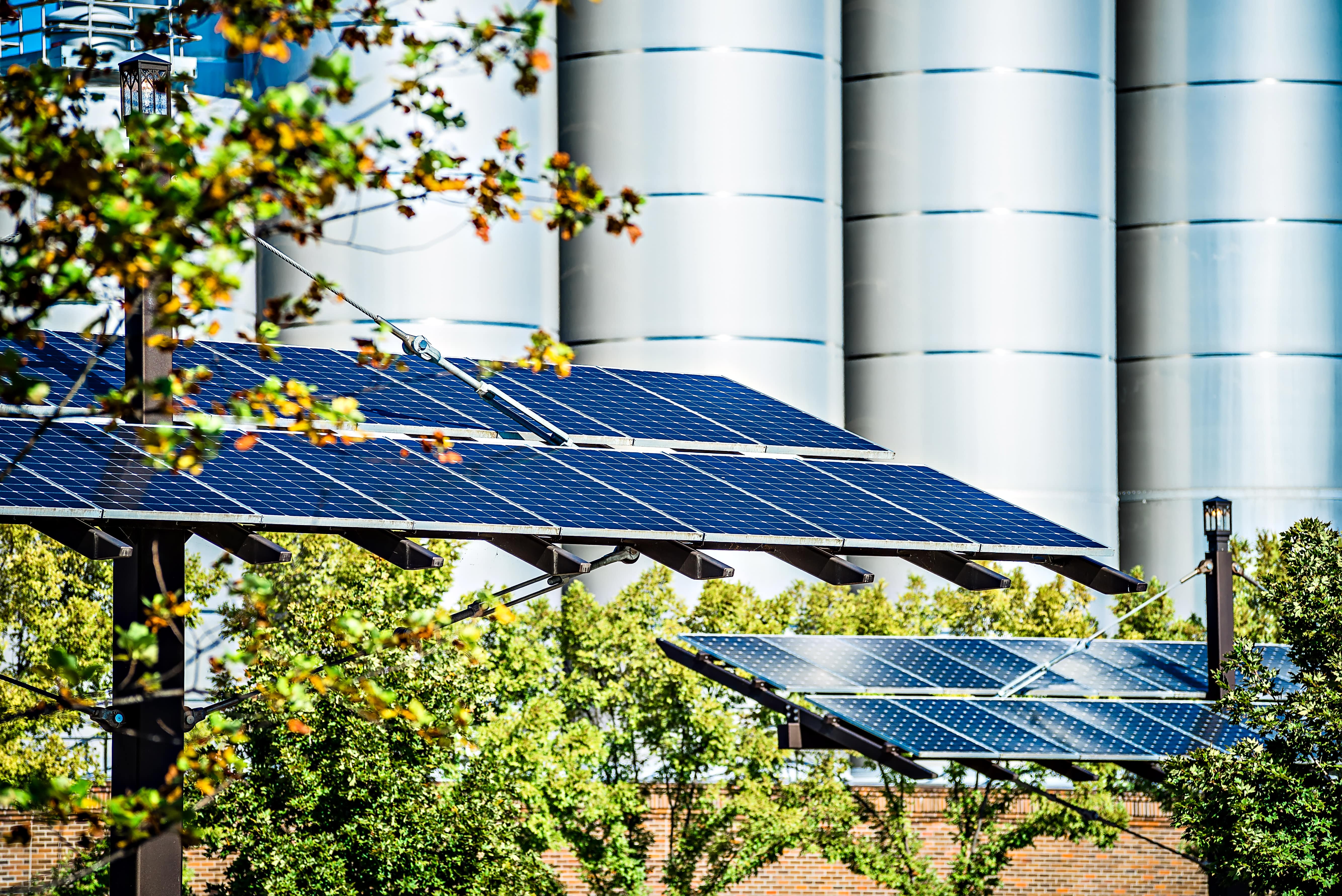

It’s hard to imagine a world without good beer. New Belgium took the thought experiment to the next level and created a worst-case scenario beer, Scorched Earth Ale, to bring attention to the effects of climate change. The brew is made with ingredients that would exist in a dystopian world with limited ingredients: a smoked malt to represent forest fires, drought-tolerant grains like buckwheat and millet, and a hop extract since hops are a “delicate agricultural product.” While fascinating, the beer is only for a select few's taste buds.
The unfortunate reality is beer, like most products in a global economy, requires resources and leaves behind waste. Three to seven barrels of water produce one barrel of beer. Energy heats and cools ingredients throughout the brewing process. Materials, grains, hops, yeast, and the final product are shipped all around the world. It’s why many breweries are finding other uses for byproducts and incorporating waste-saving measures into processes to create a more sustainable industry.
At the Brewery
Ska Brewing, out of Durango, Colorado, has made huge strides in sustainability efforts over the past few years. Used denim insulates the brewery walls. They use recycled water to water the lawn and flowers in the summertime. And a few years ago, they covered the roof with solar panels.
"We installed as many solar panels as we could—223 of them, taking up all usable space on the building," said Ska Founder Dave Thibodeau.
The panels generate enough energy to brew approximately 545,000 pints each year and produce a quarter of the brewery's power. Wind generates the rest.
Ska’s working toward that goal and currently aims to compost 100% of their spent grain, hops, and yeast, another sustainability trend. Spent grain, the starches left over after they have soaked in water, is one of the main byproducts left from the brewing process, about 85% of brewery waste. Every 6-pack leaves behind a pound of spent grain. That equals about 20 billion pounds per year in the US alone.
Ska plans to partner with a Durango company, Table to Farm Compost, that collects compost from residential and business locations. Composting is a popular option for brewers, but some brands have thought of other creative ways to reuse spent grains.
Wallenpaupack Brewing Company in Hawley, Pennsylvania, gives their leftover starches to local farmers to feed their livestock. Operations manager and salesman Sean O’Day says the farmer prefers it because it has more protein compared to other feed he can get from a feed store. Other brands upcycle the grain by selling it to purveyors who make dog treats or human snacks. And some, like Alaskan Brewing Co., convert their spent grain into fuel through a process that turns the grain into methane gas. The captured gas then fuels brewery operations.
On the Shelf
But while the spent grain is compostable and biodegradable, a lot of beer packaging is not, which is why these materials may be the most egregious byproduct of the beer industry. Polypropylene grain bags and 6-pack rings are particular nuisance to the environment.
“Packaging materials, especially plastics, produce a lot of waste. From shrink wrap for pallets to 6-pack holders, there is a lot of plastic usage at breweries. It's part of our credo to eliminate this waste,” Thibodeau said. “We're actively moving away from plastics. I'm really proud to say that we're making the 100% switch from plastic 6-pack rings to paperboard rings.”
To name a few more, East End Brewing in Pittsburgh, Pennsylvania, recycles its plastic to make new carriers that are 100% recycled. Corona Brewery is experimenting with biodegradable packaging made from barley. Oregon Beverage Recycling Cooperative launched a refillable bottle program.
On the Farm
But many sustainability efforts occur before ingredients make it into the mash tun and onto the shelves. Water quality issues from runoff are a major problem, especially with herbicides and pesticides. Brewers and farmers are working together to make processes cleaner for humans and animals.
“Across the entire West Coast with all of the native salmon species, we are seeing a decline due to urbanization and water quality impact,” said Brain Muegge, a certification specialist at Salmon-Safe environmental non-profit. “In general, we need to be better about protecting watershed health.”
The Salmon-Safe certification signifies growers adhere to requirements that maintain a healthy watershed, the land that drains into streams, lakes, and rivers. This, in turn, protects the land.
Laughing Monk’s Brother Sal, Copperworks Distilling Co.’s Batch 039 whiskey, and Chainline Brewing Co.’s River Ghost IPA are all Salmon-Safe beverages. Mainstream Malt purchases ingredients from farmers who are certified Salmon-Safe. Then Mainstream aligns with other brewers who are concerned environmental stewards as well.
Muegge says he’s seen an uptick in interest in Salmon-Safe certification in recent years. “We definitely can feel some momentum,” Muegge said.
A Collective Effort
While it takes time and money to become sustainable, the trend continues to grow. These are just a few examples of how different partners work together and the environmental endeavors sweeping the beer industry. New Belgium became the first carbon-neutral brewery, certified in 2020. North Coast in Fort Bragg, California, is 93% zero waste. Sierra Nevada recycles 99.8% of its waste.
These huge sustainability actions by major brewers bring optimism to the daunting subject of climate change. They show that with the collective effort, we can all hopefully enjoy the great beer we are used to for many years to come.
